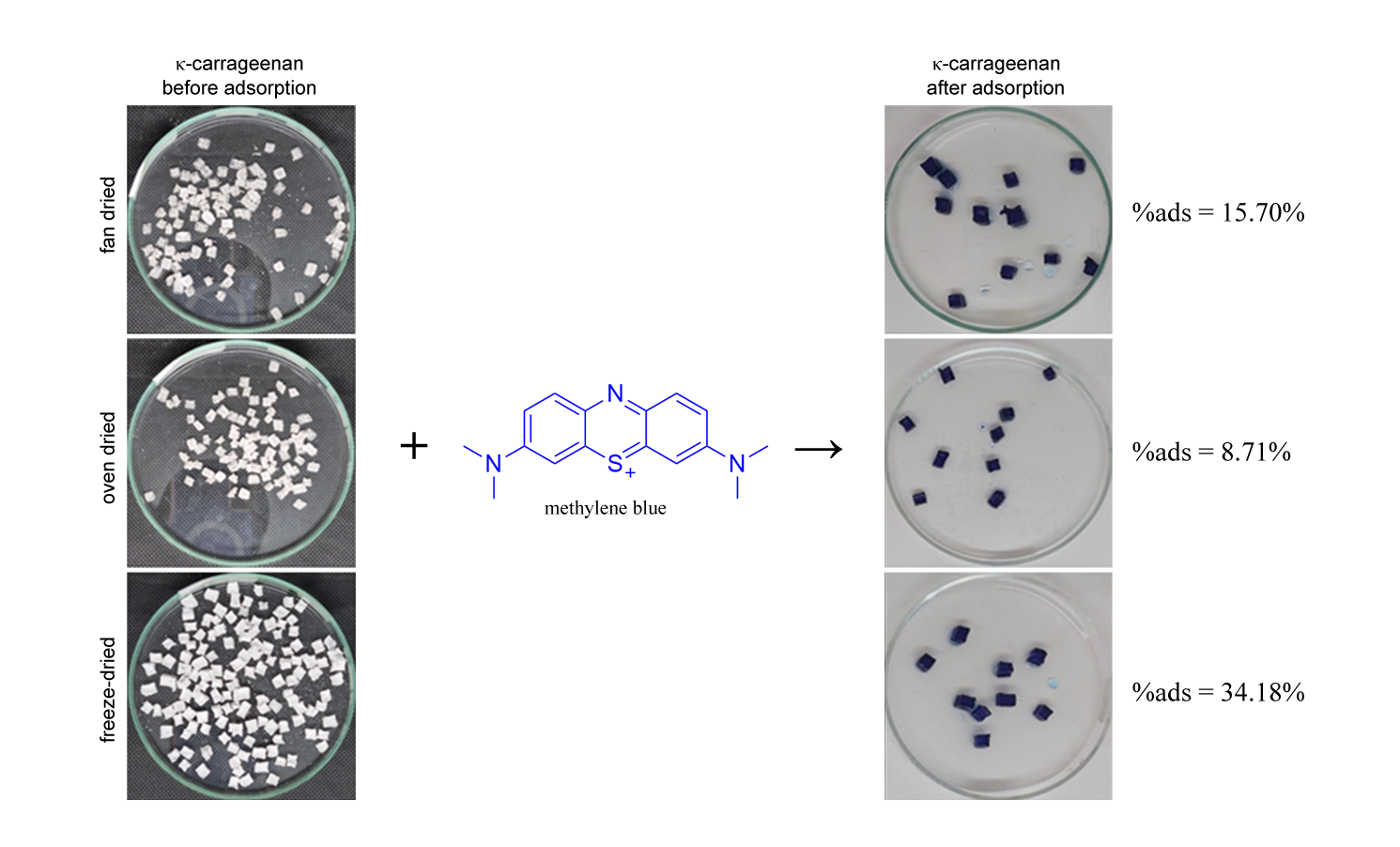Utilization of Freeze-Dried κ-Carrageenan for Methylene Blue Adsorption
Abstract
Methylene blue contamination in aquatic environments has become a global issue due to its widespread use in various industries. Methylene blue is a toxic, carcinogenic, and non-biodegradable dye. Adsorption can be employed as one method to mitigate this problem. The use of κ-carrageenan as an adsorbent offers an effective solution because κ-carrageenan is an abundant, easily obtainable, and economical biopolymer with promising adsorption performance. In this study, κ-carrageenan was cross-linked with K+ to form a hydrogel, which was then freeze-dried to produce a macroporous κ-carrageenan adsorbent. Characterization using FTIR confirmed the successful preparation of the adsorbent and the adsorption of methylene blue. SEM images showed changes in surface morphology, indicating successful adsorption. The adsorption process was optimum at pH 5, an adsorbent mass of 0.1 gram, and a contact time of 3 hours. Adsorption followed a pseudo-second-order kinetic model and the Langmuir isotherm model, with a maximum adsorption capacity, qmax of 128.7 mg/g at 328 K. Thermodynamic studies showed that the process was exothermic, became more disorder as a result of an increase in entropy, and occurred spontaneously. These results demonstrate that freeze-dried κ-carrageenan adsorbent has the potential for development in sustainable wastewater treatment technology.






















